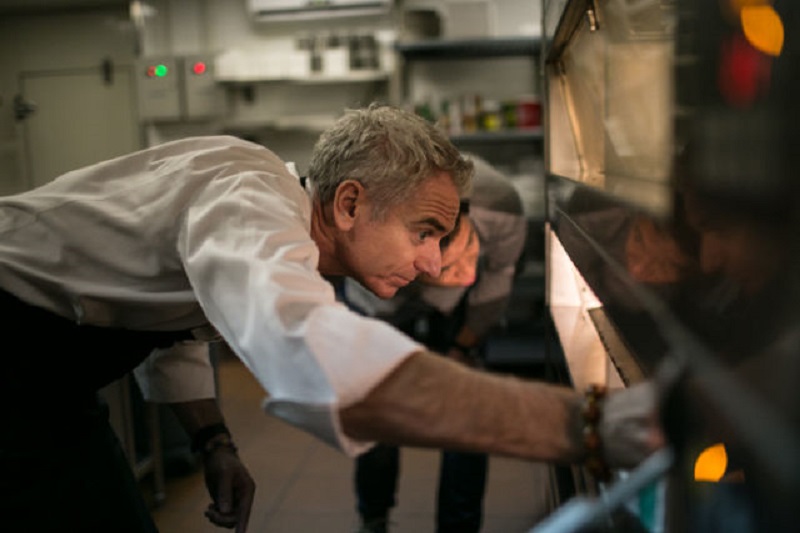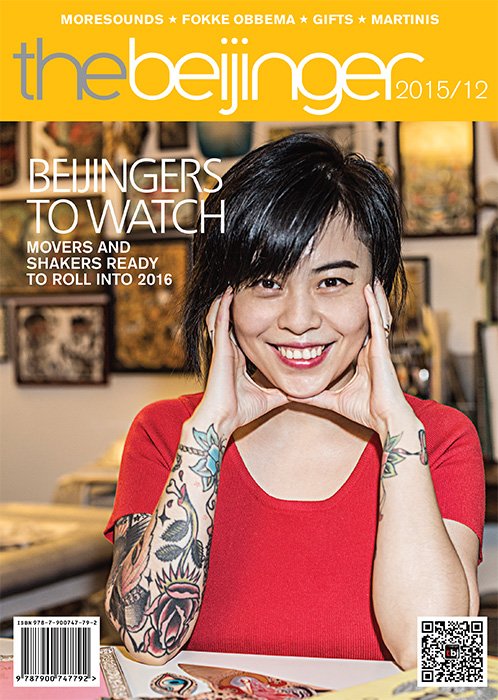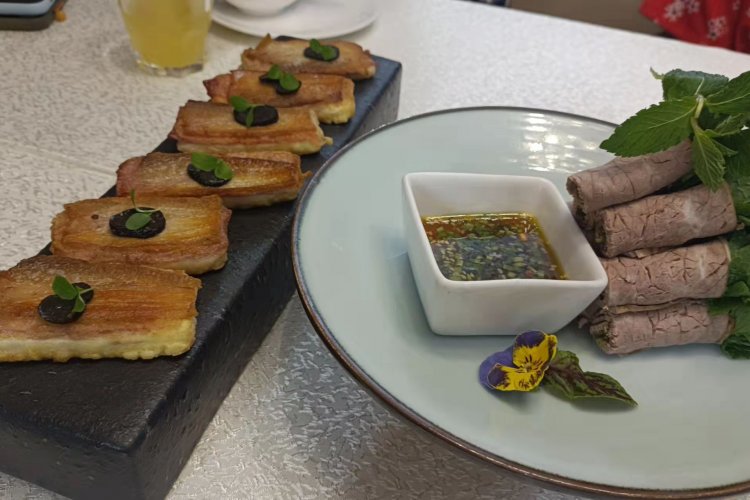EAST Hotel Executive Chef Rob Cunningham Talks Marathons and Healthy Eats
You may think that the life of a chef is all rich food, heavy drinking, and staying up well after the kitchen has closed. Not so, says EAST Hotel Beijing’s Executive Chef Rob Cunningham. As one of the most visible and active personalities on the Beijing F&B scene, Rob also stays active away from the kitchen as an avid marathon runner. We talk to him about what motivates him to run and his favorite places to run in Beijing.
Why do think so many chefs (Gordon Ramsay and Michel Roux Jr. included) run marathons?
Most chefs start their careers quite young. It’s full on when you’re young and your social life is closely connected to the industry. You finish work, you drink, you stay out late, you get up early the next morning – basically minimal sleep and a lot of alcohol. By the time you get a bit later in life you start to think, “I really need to look after my health.” After you get older, you realize that if you’re going to continue to work long hours and do a demanding job, you need your wits about you – you need sleep, you need exercise, and you need a balanced lifestyle.
It was only about 20 years ago that being a chef was still one of the worst careers for early deaths. When I first started out, one of the chefs I was working for was 46, and he would start the day with half a glass of vodka. Then you would see him running the kitchen with a glass of red wine and a cigarette on the go. Hardly any chefs smoke all the time now and drinking has changed to more of an appreciation rather than an excess.
Most successful chefs are quite driven. Like anyone in any career they’re successful for a reason. Once you reach that level of success what have you got left to achieve? So many people start pushing themselves physically.
When did you start running?
My first half marathon was Beijing last year, then my first full marathon was in Guilin in October last year – that was part of a 100km race (the equivalent of two and a half marathons). Since then I’ve done five half marathons and two full marathons.
What marathon has been the most memorable or enjoyable?
Guilin, for sure. We ran a full marathon on the first day. That was my first ever marathon, which I did in under four hours. It was great to be down there with the Hey Running crew, too, just to have that camaraderie.
Do you mostly train with HeyRunning? How else do you train?
I train with HeyRunning on Mondays and Wednesdays and then I normally try and do one or two other runs through the week. If you’re planning to run a marathon, I would do at least 40km a week, including pace training and at least one 20km run. The best thing about the HeyRunning training, it’s not just about distance, it’s about intervals, which helps build up your speed and your stamina.
What are some of your favorite places to run in Beijing – pollution permitting?
From Sanlitun, I run up along the Liangma River to the lake just behind the Agricultural Exhibition Center. The lake is 900m, so I usually run 10 laps, with including the route over is around 16-17km. If I’m at EAST, I run out and back along the canal, which is about 18km. I also run up the stairs in the hotel, which was suggested to me by my trainer – that’s 25 stories each way.
What advice would you give to someone training for a long distance race in terms of diet?
I tend to avoid the carbohydrate-heavy diet – if I do eat carbohydrates at all I tend to stick to sweet potatoes, things like that that aren’t too hard to digest. I tend not to eat on the morning of a marathon – although that’s a habit I need to change – I just drink a lot of water and have some salts. I don’t use those energy gel sachets either, they’re too false.
My favorite ultra marathon runner is a guy called Rich Roll. He has a podcast where he invites a lot of other sportspeople and entrepreneurs to talk about health and fitness issues. The thing that brings them together is that they’re all vegan. Many of the doctors they have on say that it’s a myth that you should eat a high protein, high carb diet while training for any kind of sport, and that it actually has an adverse effect. Basically, the more processed a food is, the worse it is for you.
Is this a philosophy that you would like to bring into the kitchen at Feast?
How do you dictate to people what they eat? The Beijing market maybe isn’t ready for that yet. It’s true that if you start to introduce a concept to the market people will start to try it out. But it is difficult for a mainstream restaurant. We could introduce elements of it certainly. Actually that’s something we’re going to do in Domain, quinoa salads, juices, that kind of things.
More stories by this author here.
Email: robynnetindall@thebeijinger.com
Instagram: @gongbaobeijing
Twitter: @gongbaobeijing
Weibo: @宫保北京
Photo: EAST Hotel








